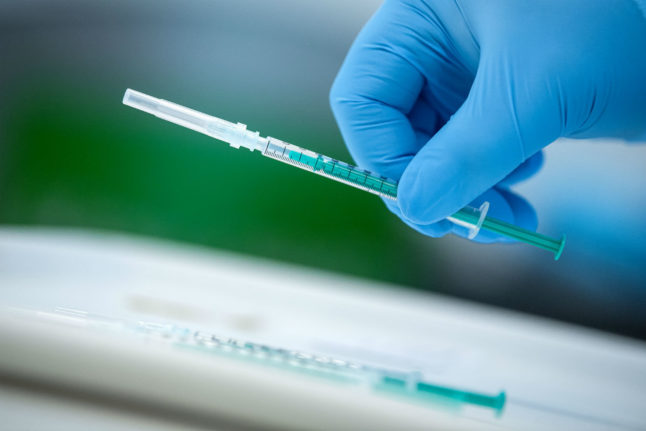The seven women and one man, aged between 38 and 54, are employees of a retirement home in the town of Stralsund in northeastern Germany.
They are therefore in a priority group and among the first to receive the
Pfizer-BioNTech Covid-19 vaccine, which Germany began rolling out at the
weekend.
READ ALSO: First doses of Pfizer's Covid-19 vaccine arrive in German regions
But as they were being inoculated on Sunday, they were each injected with
five doses at once, according to Stefan Kerth, the administrator of the
district where the facility is located.
They were immediately informed of the error, Kerth said.
Four were admitted to hospital for observation with mild flu-like symptoms, while the others were sent home.
“I deeply regret this incident,” Kerth said, adding that the mistake was an isolated case and down to human error.
“I hope all those affected suffer no serious side effects,” he said.
Ahead of the launch of vaccination campaigns in several European countries at the weekend, German company BioNTech said larger than normal doses had been injected during trials without serious side effects.
The vaccine, created in less than a year and designed to be administered in two injections, is being delivered in vials that each contain five doses once diluted.
However, a spokeswoman for the health ministry said Monday that the vials could each be used to give up to six doses.



 Please whitelist us to continue reading.
Please whitelist us to continue reading.
Come on! What the hell is going on here? If they can’t even administer a single dose correctly, how can we have confidence that it’s even being distributed fairly. This is the typical outcome when something is rushed, it becomes a flustercluck.